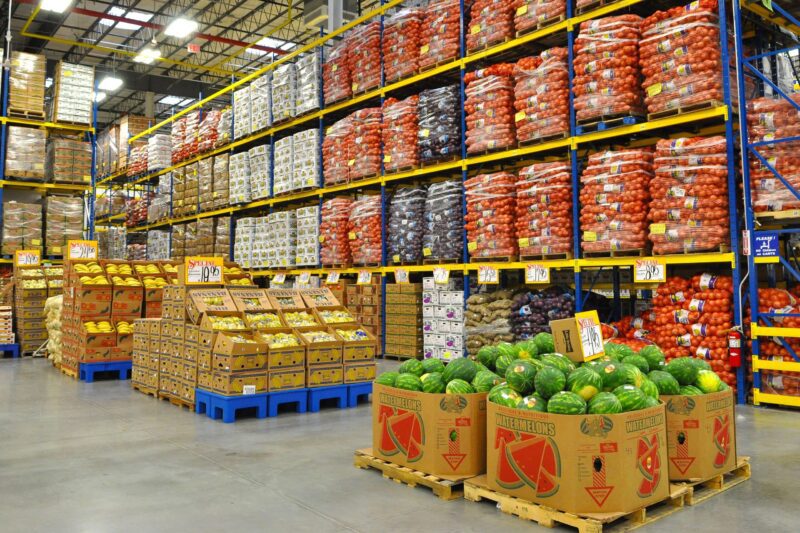Bread has been a staple in homes for centuries, but not all flours are created equal—especially when it comes to artisan bread flour versus commercial flour. If you’ve ever wondered why a bakery loaf has that crispy crust and chewy interior while supermarket bread feels soft and airy, the answer lies in the bread flour used.
Let’s break down the real differences between artisan and commercial bread flour so you can better understand what goes into your favourite loaf.
What Is Bread Flour?
Before diving into the comparison, let’s first define bread flour itself.
Bread flour is a high-protein wheat flour that typically contains 12–14% protein, which is higher than that of all-purpose flour. This protein, primarily gluten, lends bread its structure and elasticity. That’s why bread flour is the top choice for recipes that require rise and chew—like sourdough, baguettes, and sandwich loaves.
Now, let’s look at how artisan and commercial types of bread flour differ.
1. Source and Processing
Artisan Bread Flour:
- Usually made from heritage or specialty wheat varieties
- Often stone-ground, which preserves more nutrients and flavour
- Less processed and sometimes organically grown
- Milled in small batches to maintain quality and consistency
Commercial Bread Flour:
- Typically mass-produced from high-yield wheat varieties
- Milled using roller mills for efficiency and shelf life
- Often bleached or enriched to meet standard regulations
- Prioritises volume and uniformity over unique flavour profiles
Key takeaway: Artisan bread flour focuses on quality and flavour, while commercial flour emphasises quantity and consistency.
2. Protein Content and Gluten Quality
Artisan Bread Flour:
- High in protein, but the gluten structure varies depending on the wheat variety
- Provides strong dough with a more complex texture
- Ideal for slow fermentation methods like sourdough baking
Commercial Bread Flour:
- Also high in protein, but usually standardised for uniform results
- Designed to create dough that performs consistently in commercial equipment
- Less variation in gluten development from bag to bag
Key takeaway: Artisan flour may require more time to work with, but it allows for a richer flavour and crust. Commercial flour is convenient and reliable for quick baking needs.
3. Flavour and Aroma
Artisan Bread Flour:
- Often retains more of the wheat’s natural oils and minerals
- Delivers a richer, nuttier flavour
- Perfect for those who value taste and texture in homemade bread
Commercial Bread Flour:
- Milder in flavour, which can be masked or improved with additives
- Designed more for function than taste
- Can be a bit bland without enhancements
Key takeaway: Artisan flour wins when it comes to flavor, thanks to less processing and better-quality wheat.
4. Shelf Life and Storage
Artisan Bread Flour:
- Shorter shelf life due to minimal processing and natural oils
- Best stored in a cool, airtight environment or freezer
- May be seasonal or harder to find in regular stores
Commercial Bread Flour:
- Longer shelf life due to preservatives or refined milling
- Easy to find in supermarkets year-round
- Great for bulk storage and regular baking
Key takeaway: Commercial flour is better for convenience, while artisan flour requires a bit more care and planning.
5. Price and Availability
Artisan Bread Flour:
- More expensive due to specialty grains, small-scale milling, and organic practices
- Often available at health food stores, online shops, or local mills
Commercial Bread Flour:
- Widely available and budget-friendly
- Sold in large supermarkets or wholesale in baker’s supply stores
Key takeaway: If you’re baking daily or on a budget, commercial flour is practical. For weekend baking or gourmet loaves, artisan flour is worth the splurge.
So, Which One Should You Use?
It depends on what kind of bread you want to bake and how much effort you want to put into it.
- Choose artisan bread flour if you want full control over your ingredients, crave deep flavors, and are experimenting with slow fermentation or sourdough.
- Go for commercial bread flour if you need a convenient, affordable, and consistent flour for everyday baking like sandwich loaves or quick dinner rolls.
Many home bakers actually keep both types on hand for different purposes.
Take Away
Understanding the differences between artisan and commercial bread flour helps you choose the right one for your recipe and goals. Artisan flour offers an elevated baking experience with better flavour, but commercial flour is ideal for convenience and reliability.
Whether you’re a weekend baker experimenting with crusty sourdough or someone who enjoys homemade sandwich bread, the right bread flour can elevate your results.
So next time you’re in the baking aisle or browsing online, take a closer look at the flour bag. It could be the secret to your best loaf yet.









